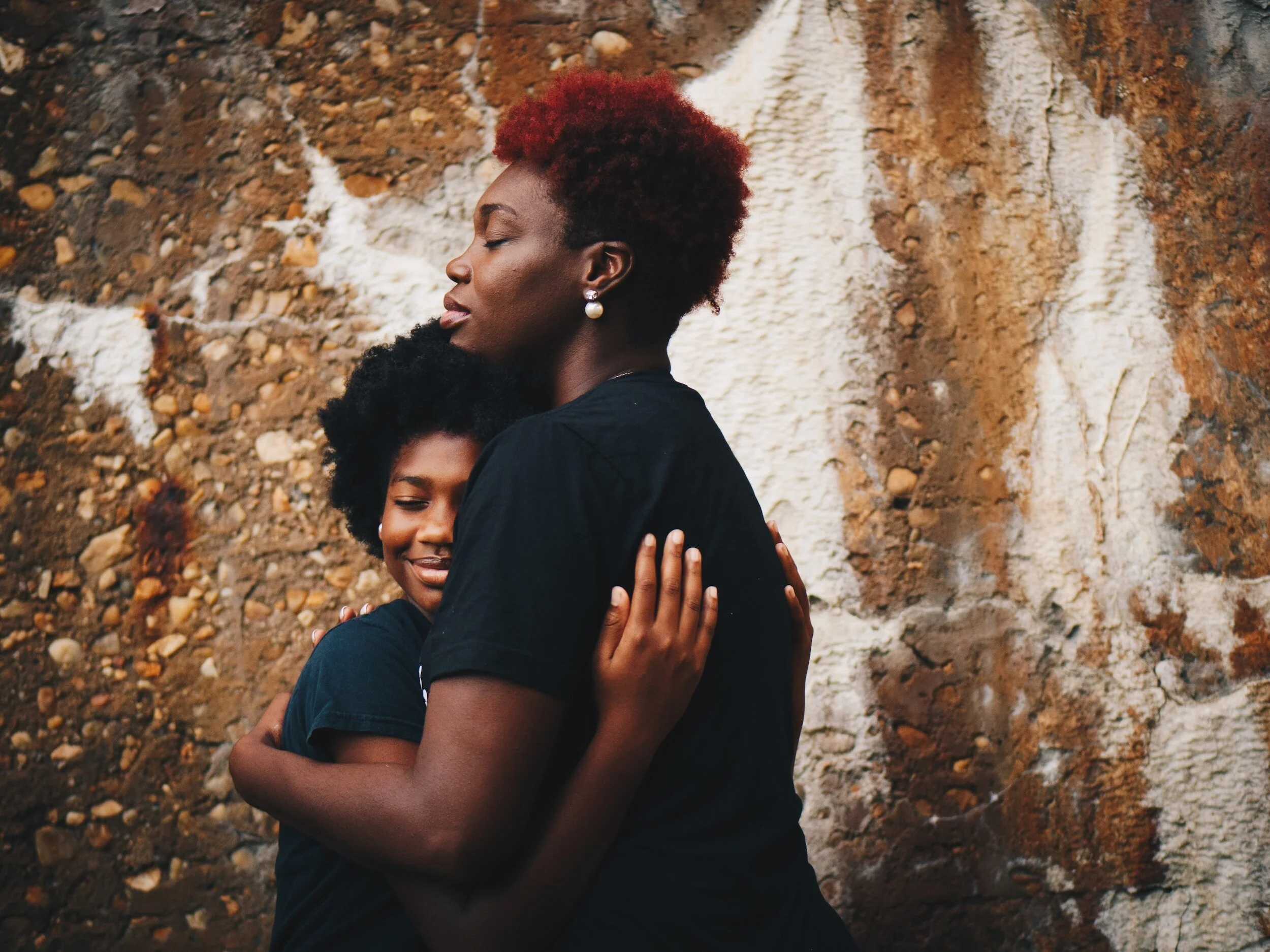Nourishing the Mind and Body: Building a Healthy Relationship with Food and Body Image
9 Tips on How To Have a Healthy Relationship With Food
In a world that often bombards us with unrealistic beauty standards and fad diets, developing a healthy relationship with food and body image can be a challenging journey, particularly for people with disordered eating. It's essential to approach this process with compassion, self-care, and a commitment to long-term well-being. In this blog post, we'll explore practical steps to nurture a positive connection between your body and the food you consume, fostering a happier, more balanced life.
I. Cultivate Mindful Eating
Mindful eating is a practice that encourages you to be present in the moment, savoring each bite and paying attention to your body's hunger and fullness cues. Instead of rushing through meals or eating on autopilot, take the time to engage your senses. Notice the colors, textures, and flavors of your food. This mindfulness can help you foster a deeper appreciation for the nourishment you're providing your body.
Here are some ways to encourage mindful eating for yourself. Remember that any change is a slow process, so don’t feel like you ever need to master this. Instead, focus on practicing some of these tips to move in that direction:
Create a Peaceful Environment: Find a quiet and calm space to enjoy your meals. Minimize distractions like TV, phones, or work-related tasks. This allows you to focus solely on the act of eating.
Engage Your Senses: Take a moment to appreciate the colors, textures, and aromas of your food. Notice the flavors and how they evolve as you chew.
Eat Slowly and Chew Thoroughly: Take your time with each bite. Chewing thoroughly not only aids digestion but also allows you to savor the taste and texture of your food.
Pay Attention to Hunger and Fullness Signals: Before you start eating, take a moment to check in with your body. Are you genuinely hungry, or are you eating out of habit or emotion? Similarly, pause periodically during the meal to assess your level of fullness.
II. Banish the "Good" and "Bad" Food Labels
One of the first steps towards building a healthier relationship with food is letting go of the labels we often attach to it. Food is not inherently "good" or "bad" – it's a source of sustenance and pleasure. Allow yourself to enjoy a wide variety of foods, and remember that balance is key. A diet rich in diverse nutrients is essential for overall health and well-being.
Often when we label foods as good and bad, we then develop a moral attachment to these foods. This can cloud our intuition and lead to feelings of guilt or shame when eating certain foods and pride when eating others. In either sense, we are utilizing external motivators to guide us towards what our body needs, and this can quickly become confusing when it’s working against our natural tendencies.
III. Practice Intuitive Eating
Intuitive eating is about listening to your body's natural hunger and fullness signals, rather than following external rules or restrictions. Trust your body's wisdom to guide your food choices. This process can be liberating and empowering. It allows your inner wisdom to guide you towards choices of food that feel best for you. Instead of blocking both physical and emotional feelings when it comes to food, this process requires your attention to these feelings. You may begin to notice that certain foods agree with you more than others. You may be surprised that what works for you doesn’t work for a friend or may even stray away from information you have learned about food and wellness. It’s important to lean in and identify what feels best for you while making sure the mind is open to trying a variety of foods.
IV. Seek Out Mental Health Counseling and Professional Help
Building a healthy relationship with food and body image can be a complex journey, and it's crucial to seek professional help when needed. Due to the many influences of diet culture, it can be challenging to jump from a state of disordered eating and into intuitive eating without some structured guidance. The key is building intuition towards your needs, but if your needs have been suppressed for a while, this may take some support along the way. A combination of support through individual therapy or health coaching and a dietitian can provide a balanced approach to working through emotional barriers and ensuring that your body is receiving a sufficient amount of nutrients needed to thrive.
V. Embrace Self-Compassion
Practicing self-compassion is vital in any healing journey. Many times, a difficult relationship with food and body image begins with self-hatred and self-punishment. The opposite is what is needed for healing. It can be challenging to embrace this as it’s often foreign to most people who struggle with disordered eating. It takes time to believe the compassion you are practicing for yourself, so be patient with the feelings that come up in response to this. Allow yourself time to get used to this relationship with yourself, knowing that it will eventually feel normal if you continue to practice.
Progress often comes in small steps. You can begin by treating yourself with the same kindness and understanding that you would offer to a loved one facing a similar situation.
VI. Cultivate Body Positivity
Body positivity doesn’t mean you have to adore your body 24/7. What it does mean is that you reduce the negative self-talk about your body and incorporate new ways to look at and appreciate your body. Everyone who is alive has a body that’s working hard. We can’t even begin to understand half of the things it does and how it does it. It’s pretty incredible when we think about all that’s going on, even down to our microscopic cellular functions.
Shifting your focus from appearance-based judgments to appreciating the incredible capabilities and resilience of your body is a good place to begin. Check in with how you are feeling physically and offer your body support in getting through the days. Some days you may benefit from vigorous activities, while others may require a gentle approach. Provide your body with inputs that allow it to build strength, flexibility, relaxation, and rest. Engage in activities that make you feel good in your own skin, whether it's dancing, yoga, or simply taking a leisurely walk in nature.
VII. Challenge Negative Thoughts
Negative thought patterns often perpetuate disordered eating behaviors. It's essential to challenge these thoughts and replace them with more positive, realistic perspectives. The first step in being able to do this is developing awareness of negative self-talk. Most of the time, we don’t even realize that these thoughts are present or the frequency at which they’re happening.
Often, the same negative thoughts are repeated throughout the day. When you develop awareness of these specific thoughts, you then become aware of when they are happening and have an opportunity to redirect them. At one point in your life, these thoughts may have felt needed. They may have been a survival response. With awareness, you now have the power to see them and better understand how they are impacting you. You can then tell them that they are no longer needed and begin practicing thoughts that you would like to bring in. Therapy can assist you in identifying which thoughts are harmful and how to reframe them.
VIII. Prioritize Self-Care
Nurturing your mental and emotional well-being is a crucial component of building a healthy relationship with food and body image. Engage in activities that bring you joy and fulfillment, whether it's reading, painting, meditating, or spending quality time with loved ones.
This positive time spent with yourself fosters self-compassion and self-love. It allows you to nurture the parts of yourself that need play, creativity, and connection. When these parts are nurtured, it has a positive impact on your well-being as well as your relationships.
IX. Focus on Long-Term Health
Shift your perspective towards long-term health rather than short-term fixes. Nourishing your body with balanced, nutritious meals supports physical vitality, mental clarity, and emotional well-being. Remember that health is a holistic concept that encompasses both body and mind.
Here is a helpful article we wrote on the best foods for good mental health.
Conclusion - How To Have a Healthy Relationship With Food
Building a healthy relationship with food and body image is a transformative journey that requires patience, self-compassion, and dedication. By embracing mindful eating, banishing food labels, practicing intuitive eating, seeking professional support, and cultivating self-love, you can pave the way for a balanced, fulfilling life. Remember, you are worthy of a positive and nourishing connection with your body. Embrace the journey towards a healthier, happier you.
If you are looking for support with disordered eating or managing symptoms of anxiety, schedule a free first counseling session in Maine today!
Lauren MacKellar




